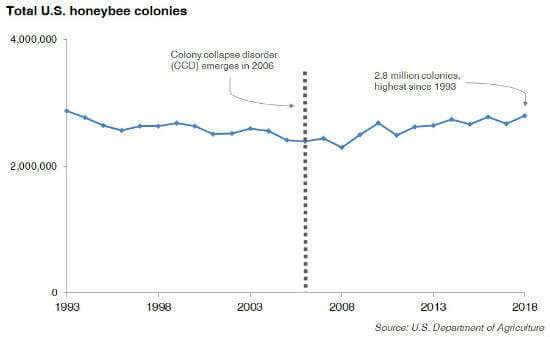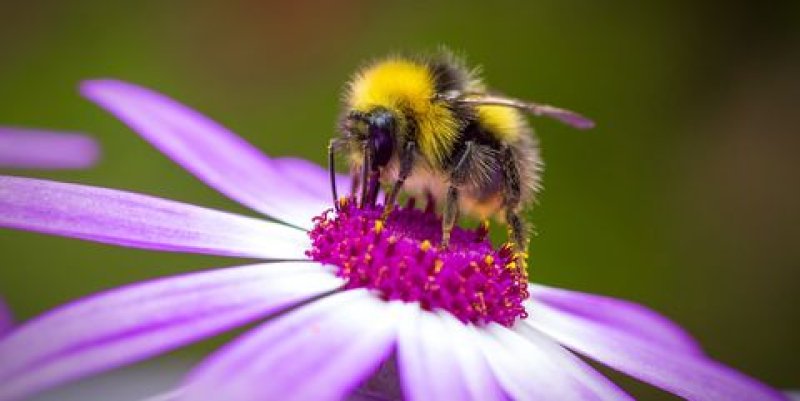Warnings of an impending “bee apocalypse” became widespread in 2006, after some commercial beekeepers reported the mass disappearance of worker honeybees from a substantial proportion of their hives, leaving behind larva, young bees, queen bees, and supplies of honey …. dubbed colony collapse disorder (CCD).
…
In his August/September 2017 Reason article, “How Capitalism Saved the Bees,” Shawn Regan, a research fellow at the Property Environment Research Center in Bozeman, Montana, reported that in spite these CCD losses, the number of commercial colonies in the United States has basically remained steady over the past two and half decades, at around 2.5 million hives:

“Thanks to a robust market for pollination services, [commercial beekeepers] have addressed the increasing mortality rates by rapidly rebuilding their hives, and they have done so with virtually no economic effects passed on to consumers,” explained Regan. “It’s a remarkable story of adaptation and resilience, and the media has almost entirely ignored it.”
…
A new study in the Journal of the Association of Environmental and Resource Economists confirms that beekeepers have readily adapted to the challenges posed by CCD.
Read full, original article: No ‘Bee-Apocalypse,’ Thanks to Free Markets































